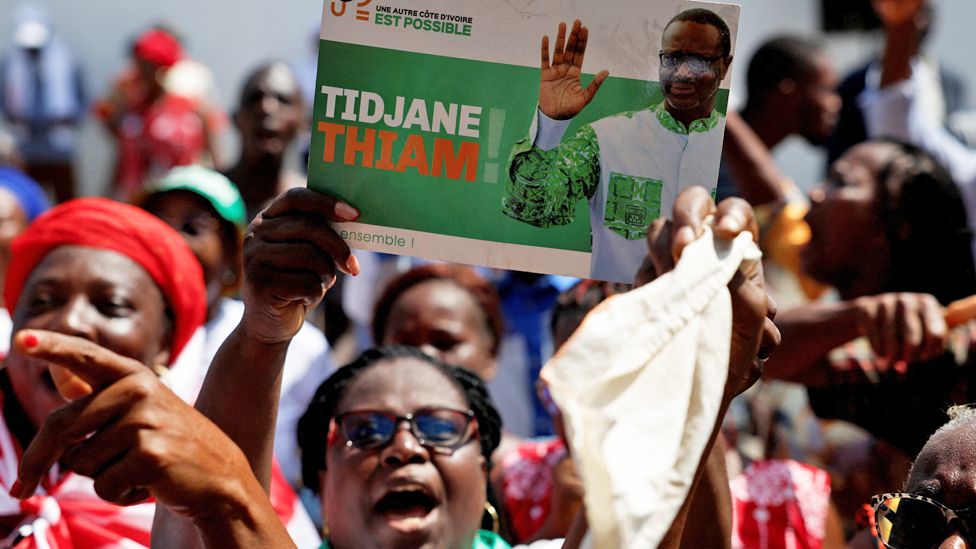Is Ivory Coast’s red card politics an own goal for democracy after Tidjane Thiam’s ban?
Recent developments in Ivory Coast have raised eyebrows about the state of democracy in the nation renowned for its cocoa production and athletic talent. As Tidjane Thiam seeks to establish himself as a presidential contender, the harsh realities of Ivorian politics are unfolding, revealing an unsettling landscape where identity issues clash with aspirations for democratic governance.
Thiam, a highly respected figure who made a name for himself in global finance before returning to his homeland, has seen his journey towards the presidential elections halted abruptly. A ruling from an Ivorian court on April 22 declared that the 62-year-old could not participate in the electoral race due to his loss of Ivorian citizenship upon taking French nationality several decades prior. This ruling came as a shock during a period where Thiam appeared to gain momentum as a potential successor to the current president, Alassane Ouattara, who has led the country since 2011.
A member of a noble lineage and a relative of the late founding president, Félix Houphouët-Boigny, Thiam’s political aspirations included unifying Ivorian citizens under his technocratic approach. His potential candidacy gained traction following the death of former President Henri Konan Bédié, a key opposition leader. On April 17, he was announced as the Democratic Party of Ivory Coast’s (PDCI) candidate; however, this followed by the legal complications has thrown his ambitions into jeopardy.
Background of the Political Landscape
The political environment in Ivory Coast remains complex, and the potential absence of Thiam from the race could result in a lack of formidable challenges for Ouattara or any successor he endorses. Historically, the nation has grappled with civil unrest stemming from identity-based politics that have marred democratic progress since the late 1990s. The question remains whether Ivorian voters are poised for change or resigned to an establishment that seems impervious to new leadership.
Amid a broader West African trend of military coups and anti-establishment sentiments, the disillusionment among the youth—who represent a significant proportion of the population—could tilt toward radical political ideologies. Young voters harbored hopes that Ivory Coast would emerge as a beacon of democratic reform after positive electoral transitions in neighboring countries such as Liberia, Senegal, and Ghana.
| Political Figure | Current Status | Political Impact |
|---|---|---|
| Tidjane Thiam | Barred from presidential race | Represents a potential shift in leadership |
| Alassane Ouattara | Incumbent president | Potential for a fourth term |
| Henri Konan Bédié | Deceased | Former leader of the opposition |
The implications of the court’s decision extend beyond Thiam; they reinforce the longstanding issues surrounding identity politics in Ivory Coast. The parameters surrounding dual nationality are limited, and Thiam’s challenge exemplifies the difficulties faced by many who have lived abroad yet still consider themselves Ivorian. This predicament poses a question of fairness in representing Ivorian interests, particularly with the argument that renowned athletes competing for the nation often hold dual nationalities themselves.
As the presidential election scheduled for October approaches, the evolving landscape suggests that pragmatic negotiations and public pressure may be the last avenues for Thiam to regain his eligibility. His legal team continues to contest the ruling, and the future of pivotal political aspirations in Ivory Coast hangs in the balance. Should Ouattara decide to step back from the political fray, his involvement in facilitating a compromise could define the nation’s democratic trajectory.
With much at stake, the fate of Ivory Coast’s democratic aspirations rests on its ability to navigate the tumultuous waters of identity, governance, and public sentiment.


